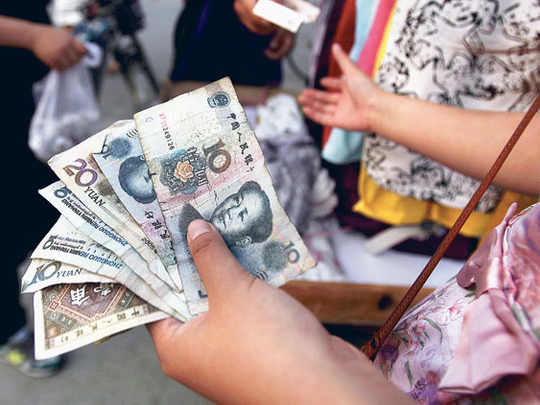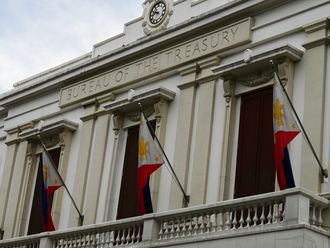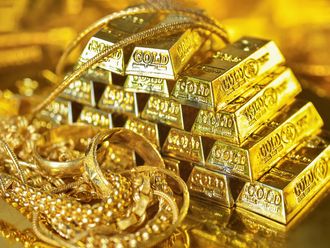
Beijing : The yuan is likely to rise about three per cent against the dollar by the end of this year, assuming the euro holds its ground against the US currency, Li Daokui, a central bank adviser, said yesterday.
"If the euro stabilises at the current level, there will be modest yuan appreciation against the dollar. It's reasonable to see appreciation of about three per cent, or less, by the end of this year," Li, one of three academic members of the People's Bank of China's monetary policy advisory committee, told Reuters.
But Li played down the extent of the yuan's possible rise, which he said would depend in part on the health of the international economy.
The fact that China had restored exchange rate flexibility was of greater significance, he said.
"I want to stress that the degree of appreciation is not important.
"The important thing is that the process (of currency reform) has resumed," Li, an economics professor at Tsinghua University in Beijing, said.
Free movement
The PBOC said on Saturday that it would once again let the yuan move more freely after having kept the currency more or less pegged to the dollar for two years to provide stability for exporters during the global downturn.
Taking a long-term view, Li said he expected the yuan to rise in value given China's productivity growth and strong balance of payments surplus.
But Li said freeing up the yuan was unlikely to trigger big inflows or outflows of capital.
Asked whether de-pegging the yuan would affect domestic interest rate decisions, Li said the process of setting rates was not directly linked with exchange rate movements.
He said the key consideration was domestic inflation, and, indirectly, a more flexible exchange rate would help tame inflation.
The yuan, also known as the renminbi, hovered around 6.81 per dollar yesterday, representing a rise of just 0.25 per cent since the long-awaited policy shift.
"China does not intentionally seek a large trade surplus with the United States.
"Over the past few years we have always been taking pro-active measures to increase exports from the US. The measures have been significant and effective," Qin added.
Beijing warns us
China yesterday warned against "protectionist" retaliation over its currency policy as lawmakers in Washington pressed ahead with legislation aimed at punishing Beijing for its weak yuan. Foreign ministry spokesman Qin Gang pushed back at calls for China to let the yuan appreciate, saying it would not solve the controversial Chinese trade surplus with the United States. "We believe the appreciation of the yuan cannot bring balanced trade," he said.
— AFP












